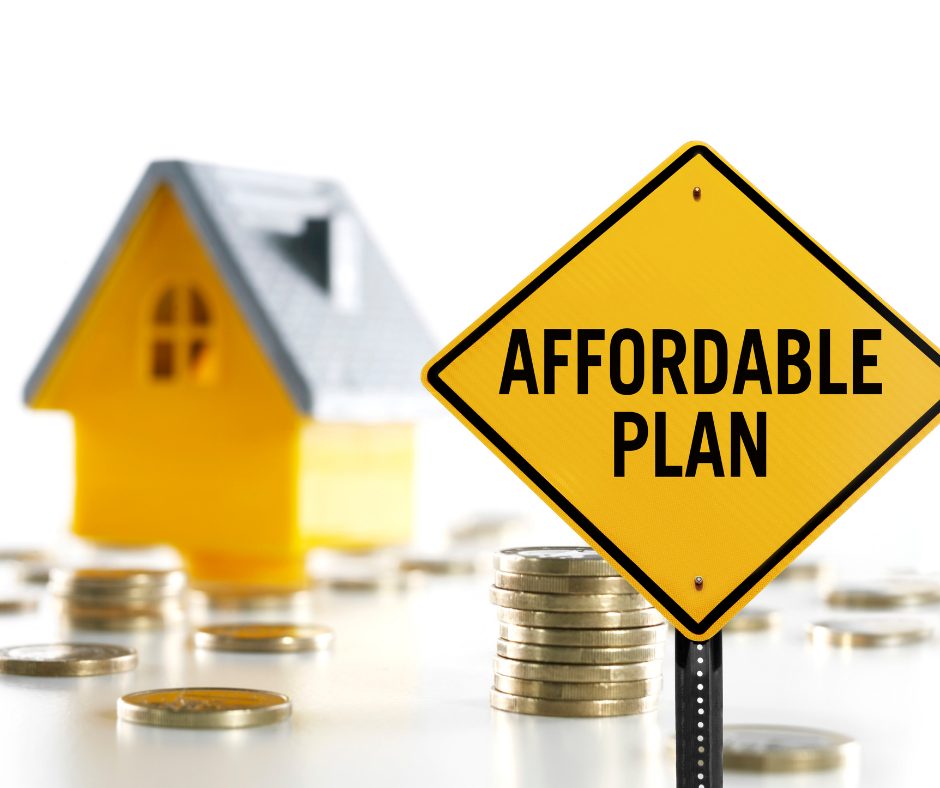How do you start buying your first Omaha NE home? The hardest part about buying…

Omaha NE Home Loans, who does them
How to qualify for a home loan in Omaha NE
Are you looking for a mortgage in Omaha Nebraska? There are several programs available each with pros and cons based on a buyer’s unique financial situation.
Qualifying for a mortgage will require a full review of your income, employment history, credit score and credit history, and your available liquid assets. Once your credit and finances are reviewed, a local loan officer can help determine which loan program fits your needs.
Find out how much home you can afford HERE
Omaha Housing Statistics
Omaha is a stable home market with fairly steady appreciation whether the economy is booming or busting. Appreciation has been very high over the last 5 years but it is still not too far off the 10 year and even 60 year average.
- Home appreciation – 60 year average 3.71% – 10 year average 3.65% – 5 year average 5.48%
- Appreciation forecast over the next 5 years is 7.67%. Home prices are expected to increase!
- Median Home Prices – $194,127 ($143 per sq ft)
- Unemployment – 3.19% (national average – 3.6%)
Loan programs available in Omaha
- Federal Housing Administration (FHA) loans
- Fannie Mae and Freddie Mac (Conventional) loans
- Veteran Administration (VA) loans
FHA home financing
While not a first time home buyer program, the FHA loan is ideally suited for first time home buyers. It allows a low down payment option even with less than perfect credit and provides options for buyers to get into homes with no money out of their pocket. If you do not qualify for conventional financing due to credit, debt, or income, you may qualify for FHA.
Benefits of an FHA loan
- Low 3.5% down payment
- Credit scores as low as 580
- High debt-to-income allowed
- Seller can cover cost and escrow
- Non-occupying co-signer option
- Gift fund option for down payment
Low 3.5% down payment
Conventional financing also offers a low down payment option, but it will require good credit and income. FHA’s low down payment option is available to buyers with lower scores and higher debt ratios. If your score is below 700 and you are looking for a low down payment loan FHA is usually the way to go. Also, while conventional will require lower debt to income ratios with their low down payment option, FHA will go as high as 56.99% on your Total Debt Ratio with the 3.5% down payment.
Credit scores as low as 580
FHA is often the only program available for buyers with less than perfect credit. Scores as low as 580 could qualify for FHA financing. However, having a above a 580 is no guarantee that you will qualify for FHA. Just like more traditional loan programs, FHA does consider your credit history in addition to your scores. Often with a 580 credit score there are credit history issues that can prevent you from qualifying (recent lates, collections, judgments, etc). If you think your scores are in the low 600s or high 500s, contact a local mortgage lender for a full review of your credit. I recommend all buyers get their scores to at least 620 before purchasing with any program. It will drastically improve the rate and fees on an FHA loan and make it much easier to qualify.
High debt-to-income allowed
FHA allows higher debt compared to income than traditional loan programs. If you are just starting your career and have a lower income, FHA will allow you to purchase a higher price house than other programs. If you have higher credit card, auto loan, or other consumer debt, FHA will give you a bit more room to add a mortgage. FHA will take the new home payment and all payments listed on your credit report and compare them to your gross monthly income. If those total debt payments are less than 57% of your gross monthly income you can qualify for FHA.
Now it is important to not put yourself in a difficult financial situation. If you are thinking of purchasing, I can review your complete financial picture to make sure you are not overextending yourself. But there are reasons you would be able to afford a home with a high debt to income ratio. You may have consumer debt that will be paid off in the near future or income that we are not or cannot use for qualifying purposes. These are all things we can look at with a free consultation.
Seller can cover cost and escrow
On an FHA low down payment loan the cost and escrow are often higher than the down payment itself. When you combine the 3.5% down payment with cost and escrow, you can often need $10,000+ on even an average house. Many buyers are using the FHA program because they lack the funds needed. Fortunately there are several ways we can get your cash needed at close down. One of those ways is a seller credit. The seller can give up to 6% of the purchase price in credits towards the cost and escrow. This is something that will be negotiated between your agent and the seller’s agent, but it is an option to get into a home needing only the 3.5% down payment (the seller credits cannot cover any of the down payment).
Non-occupying co-signer option
Now sometimes, even with FHA’s higher debt-to-income ratios, a buyer does not have the income to purchase their home. FHA does have options for these buyers by using a non-occupying co-signer. A buyer can have an immediate relative go on the loan with them and use all of their income and assets just as if they were living in the house. Even if the primary buyer has no income they could still qualify using the income of a non-occupying co-signer. This is a very popular option for college students looking to build home equity while going to school. It is also great for buyers that may have no verifiable income but still want to purchase. If you recently became self-employed you may have income that cannot be verified for a home loan. If that is the case, a non-occupying co-signer could get you in a home now instead of waiting.
Gift funds for a down payment
So a seller can give you funds for the cost and escrow and a co-signer can give you the income you need, but what about the down payment. Even with the cost and escrow covered the 3.5% down payment can still be quite a bit of money. Fortunately FHA has a solution. In addition to having a family member co-sign, they can also gift you the funds needed for the down payment or any funds not covered by you or the seller. We just need to document the transfer of funds and the donor has to sign a form saying the funds are a gift not a loan. This is very common used for buyers with little or no funds available at the time of purchase.
Why would a buyer would use FHA financing?
FHA is not restricted to any type of buyer. There is no first time home buyer or income restriction on FHA. The loan limits on FHA are as of 2020 $331,760 so that is lower than conventional financing. Generally FHA is used for a buyer that does not meet Conventional guidelines due to credit score (for ways to improve your score go HERE) or income. It can also be the case that you qualify for conventional financing but, due to credit score, FHA ends up being the better deal. These are things a local loan officer can go over with you.
Conventional loan financing
The conventional home loan is considered the “traditional loan” option. If you are a buyer with good credit, good income, and a decent amount of assets we will likely look to conventional financing first.
Benefits of a conventional loan
- 3% down payment options
- Low Mortgage Insurance
- No Mortgage Insurance with 20% equity
- Multiple conventional loans allowed at once
- Considered the “easy” loan program
3% down payment options
Conventional financing is often mistaken for a 20% down program. While 20% down on a conventional loan does have benefits, it is not required for conventional financing. In fact, conventional offers a low down payment option that is less than 3.5% FHA down payment. Unlike FHA, the conventional loan does have restrictions on who can use this low down payment option. Check out some of our other articles for more detail on the conventional low down payment option, but there are income or first time home buyer restrictions. This is where it can get a bit confusing. So if you are a first time home buyer you can get a 3% down conventional no matter your income. If you are not a first time home buyer you can still do the 3% down option but there will be income restrictions.
Low mortgage insurance
When people ask the benefit of conventional over FHA the first thing I will point out is the Mortgage Insurance. FHA often has lower rates than conventional, but this is more than offset by the higher FHA mortgage insurance. Conventional typically has much lower MI than FHA and Conventional MI gets lower the more you put down. FHA has a flat Mortgage Insurance fee so it does not get higher or lower based on credit score and down payment. Conventional MI on the other hand improves with higher credit scores and a higher down payment. And again, it is almost always lower than FHA MI.
No Mortgage Insurance with 20% equity
The Mortgage Insurance on conventional financing gets lower the more you put down (dropping off at 20% equity). The great part about conventional financing is, even if you do not put down 20% when you buy a home, the Mortgage Insurance will drop off once you get to 20% equity in your home. This can be done by paying your loan down or by increasing the value of your home (or a combination of both). If you have a conventional loan with Mortgage Insurance it is important to monitor the value of your home and your loan balance to see when you can get the MI removed. Many lenders will not remove it automatically so you will have to keep on top of it for them.
Multiple conventional loans allowed at once
Conventional financing allows up to 10 active loans at the same time. This is useful for buyers looking to purchase a second home, a vacation home, or investment property. If you are considering renting out your current house, conventional will allow you to convert your current home to an investment property and buy a new home at the same time. The flexibility of conventional helps home buyers to start building their real estate portfolio.
Conventional financing is considered the “easy” loan program
The conventional loan program is considered the easiest loan to get closed. While I personally think FHA and VA loans are just as easy to close, the market considers these “easy” loans. What does this mean for a buyer? Well it means if you are competing with several potential buyers on a home and have a conventional pre-approval you are more likely to get selected. Agents and sellers consider this the easy program so if you have the same offer as an FHA buyer that agent and seller are more likely to select your offer. Some home sellers also limit the financing they will accept to conventional financing. In a competitive housing market (a seller’s market) having that conventional loan approval will give you an edge.
Why would a buyer use conventional financing?
The goal is always to qualify for conventional financing. The mortgage insurance benefits of conventional alone make it worth getting into the loan program. If you have great credit, income, and assets we will go conventional. If you do not qualify for conventional and have to go FHA, I will continue to monitor your mortgage and home value (along with your income, assets, and credit) to eventually refinance the loan into conventional financing.
VA home financing
The Veteran Administration (VA) loan is a benefit to active military and eligible veterans. Though it is one of the three basic loan programs, it is only available to a very specific buyer. If you do qualify for VA financing (we can help you find out for sure) it is most likely your best loan option.
- No down payment required
- No mortgage insurance required
- Low rates
- High debt ratios allowed
- Possibly no money out of pocket with seller credits
No down payment required
The most well known benefit of a VA loan is that it does not require a down payment. An eligible buyer can get 100% financing with no loan limit. If your income can support a million dollar VA loan, you can buy a million dollar house with no down payment.
No mortgage insurance required
Not only do VA buyers get a home with no down payment, they also get a loan with no monthly mortgage insurance. Because mortgage insurance is not a benefit to the buyer (it only insures the lender) being able to avoid MI is the single biggest benefit of VA financing.
Low rates
FHA and VA are both called “government loans” because they are guaranteed by the federal government. This guarantee allows lenders to offer rates that are lower than conventional financing. In the case of FHA, this low rate is offset by the high monthly Mortgage Insurance. However, since VA does not have MI, a buyer gets the benefit of lower rates than traditional financing AND no MI.
High debt ratios allowed
While FHA offers debt ratios as high as 56.99%, VA has a different way of calculating debt to income ratios that is usually more aggressive than even FHA financing. VA looks at “residual income” this is your remaining income after all debts including debts that do not appear on your credit (utilities, maintenance, child care, etc). If your residual income fits within VA guidelines, it is possible to purchase a home with very high debt ratios. I have personally seen a VA approval with a Total Debt Ratio as high as 80%.
Possibly no money out of pocket with a seller credit
VA financing also allows the seller to give credits towards cost and escrow up to 4% of the purchase price. This is something that will be negotiated between your agent and the seller’s agent, but, with the no down payment option, it is possible for a VA buyer to get into a home with no money out of pocket. In fact, it is often the case that the VA buyer is getting a refund on their earnest deposit at close.
Why would a buyer use VA financing?
The simplest answer is – If you qualify for VA financing you should use it? The VA loan is a benefit for your military service and has huge advantages over conventional and FHA financing. Unless you really want to put down a large amount of money, VA is the go to program for eligible buyers.
How will you know what program is best for you?
While having all of the facts on each program is a great start, the only way to really know what program is best is with a consultation. There are so many variables and ways to structure a loan that only a local mortgage loan officer will be able to determine the best loan program.
There are other things to consider besides your credit and financial qualifications. How long you plan on living in the house can determine the best program. If you know you will have higher income or higher assets in the near future we can plan your mortgage accordingly.
A quick phone, text, or email conversation is a good place to start. – Michael Petrovich




